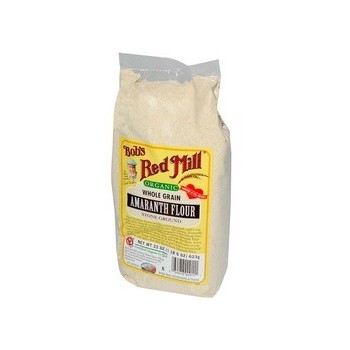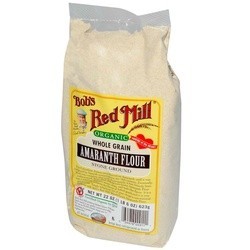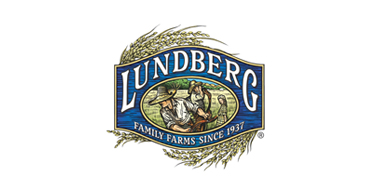Baking Essentials
Viewed products
 View larger
View larger Bob's Red Mill Grain Amaranth (4x24OZ )
Bob's Red Mill Grain Amaranth (4x24OZ )
New product
25 Items
More info
Discover the whole grain goodness of amaranth. This tiny grain - actually a seed - has a rich history dating back 8,000 years, when it was first cultivated in Mesoamerica. The ancient Aztecs relied on amaranth as a food staple and used it in religious rituals, earning it the names super grain of the Aztecs and golden grain of the gods. In the 1500s, Spanish conquistadors attempted to outlaw amaranth in an effort to convert and control the Aztecs. Lucky for us, their efforts proved unsuccessful due to amaranth's amazing ability to grow quickly and thrive in less-than-ideal soil, making it nearly impossible to extinguish.Amaranth is a gluten-free food and a source of complete protein - it contains all the essential amino acids, including lysine, which is lacking in most grains. High in fiber and a good source of magnesium and iron, Amaranth is a spectacular addition to your diet. This little powerhouse is perfect for gluten free and vegan diets.Amaranth has an earthy, nutty flavor and can be cooked and used in breads to give a boost of nutrition and a crunchy texture. Try popped amaranth for a unique breakfast cereal or to make the Mexican candy, Alegria. Amaranth can also be cooked as porridge, used to make polenta or added to soups. If you like gardening, try planting a few amaranth seeds in your yard. The amaranth flower is truly breathtaking. Don't plant too many, however, or you may see your garden become an amaranth crop.








